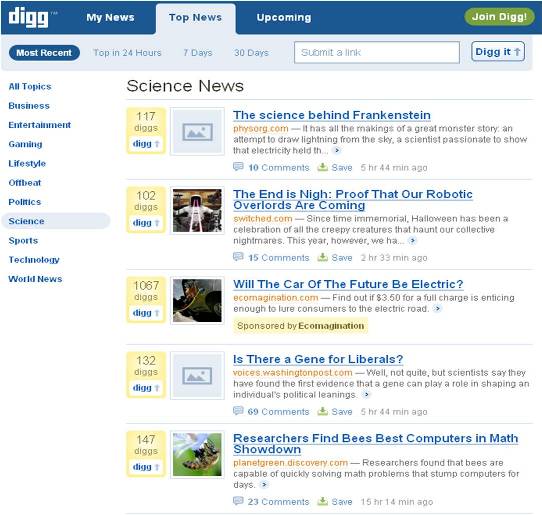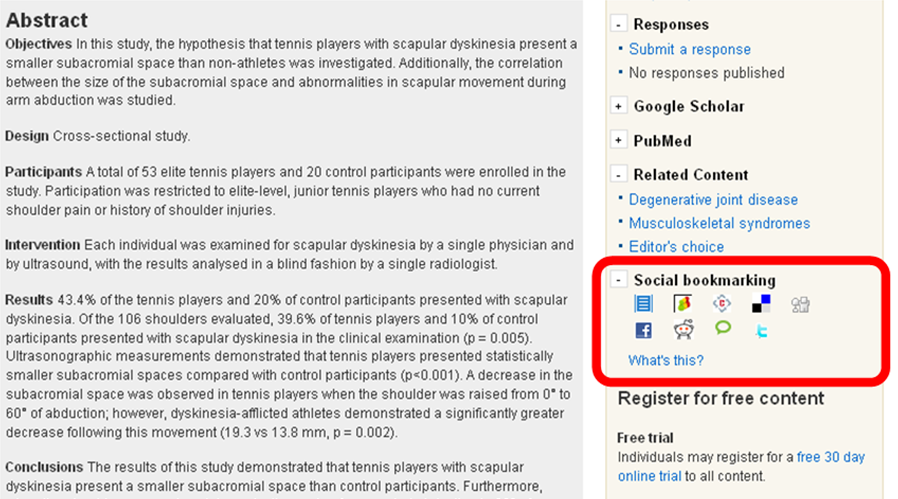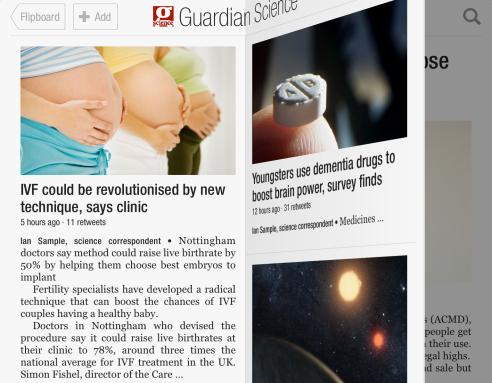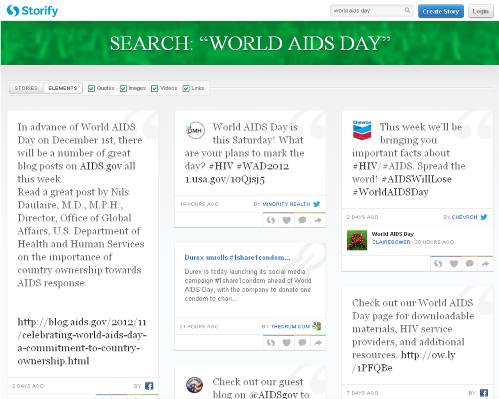Social news websites are communities that encourage their users to submit news stories, articles and media (images/videos) and share them with other users or the general public. Depending on various factors, such as the number of user votes for each item, some of these articles will be given more prominence on the website.

Social news sites generally function via a wisdom of the crowds principle; groups of individuals with different points of views are able to collectively determine the value or importance of content disseminated through the community. The users are offered the editorial power to influence the visibility of content.
Different types of social news websites
Social news websites can be separated into wide-focus or narrow-focus communities. Some of them only cater to a niche audience and others cover just about every possible topic in a bid to appeal to a mass audience.
 Digg is the most popular example of a social news website and it’s probably the most well known as well. It initially started as a community with a strong technological focus, before expanding its topics to include politics, science and other types of news. Other popular social news websites which cover a wide range of topics include Reddit and Mixx. Examples of social news websites with a more narrow focus include Showhype (entertainment) and Sphinn (Internet marketing/SEO).
Digg is the most popular example of a social news website and it’s probably the most well known as well. It initially started as a community with a strong technological focus, before expanding its topics to include politics, science and other types of news. Other popular social news websites which cover a wide range of topics include Reddit and Mixx. Examples of social news websites with a more narrow focus include Showhype (entertainment) and Sphinn (Internet marketing/SEO).
How do social news websites work?
For all social news sites, content submitted by users is filtered by an internal algorithm that automatically determines the popularity of each story. This algorithm may involve various other factors apart from absolute votes: the discussion surrounding the story and the relationship between users (friends or not) may also be taken into account.
All our journal articles contain Digg and Reddit icons in the right-hand column (see screenshot below). If you find a particular article of interest, simply click on one of these icons and you’ll be taken to the social news website where you will be asked for a brief description of the item you’re linking to. Remember, the key to a successful submission is interesting content and a descriptive title.

Our blogs also contain Digg, Reddit and StumbleUpon links (see just below under ‘Share this post’). So if you find this post of any use, do have a go at recommending it to others!






 Digg is the most popular example of a social news website and it’s probably the most well known as well. It initially started as a community with a strong technological focus, before expanding its topics to include politics, science and other types of news. Other popular social news websites which cover a wide range of topics include Reddit and Mixx. Examples of social news websites with a more narrow focus include Showhype (entertainment) and Sphinn (Internet marketing/SEO).
Digg is the most popular example of a social news website and it’s probably the most well known as well. It initially started as a community with a strong technological focus, before expanding its topics to include politics, science and other types of news. Other popular social news websites which cover a wide range of topics include Reddit and Mixx. Examples of social news websites with a more narrow focus include Showhype (entertainment) and Sphinn (Internet marketing/SEO).
